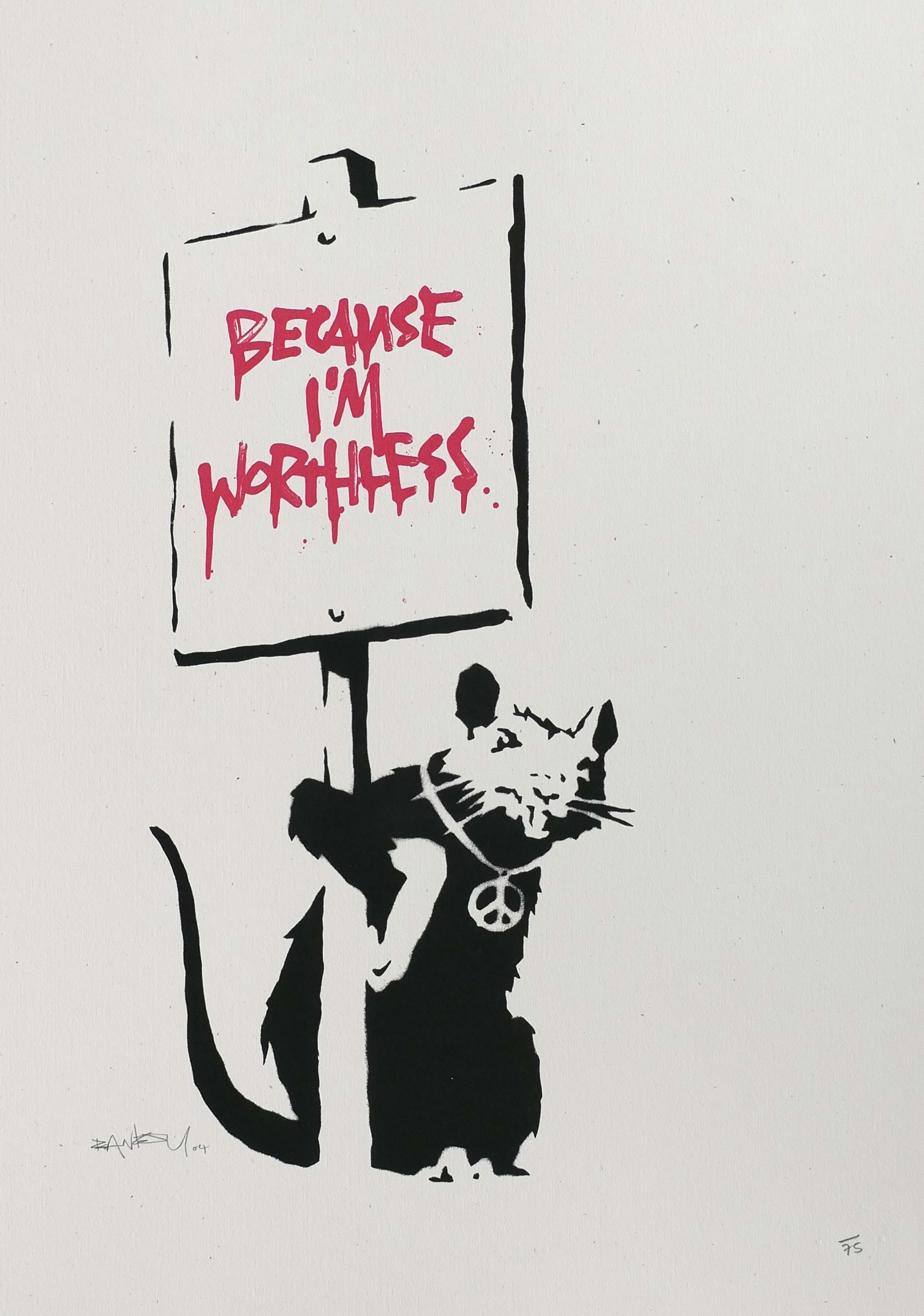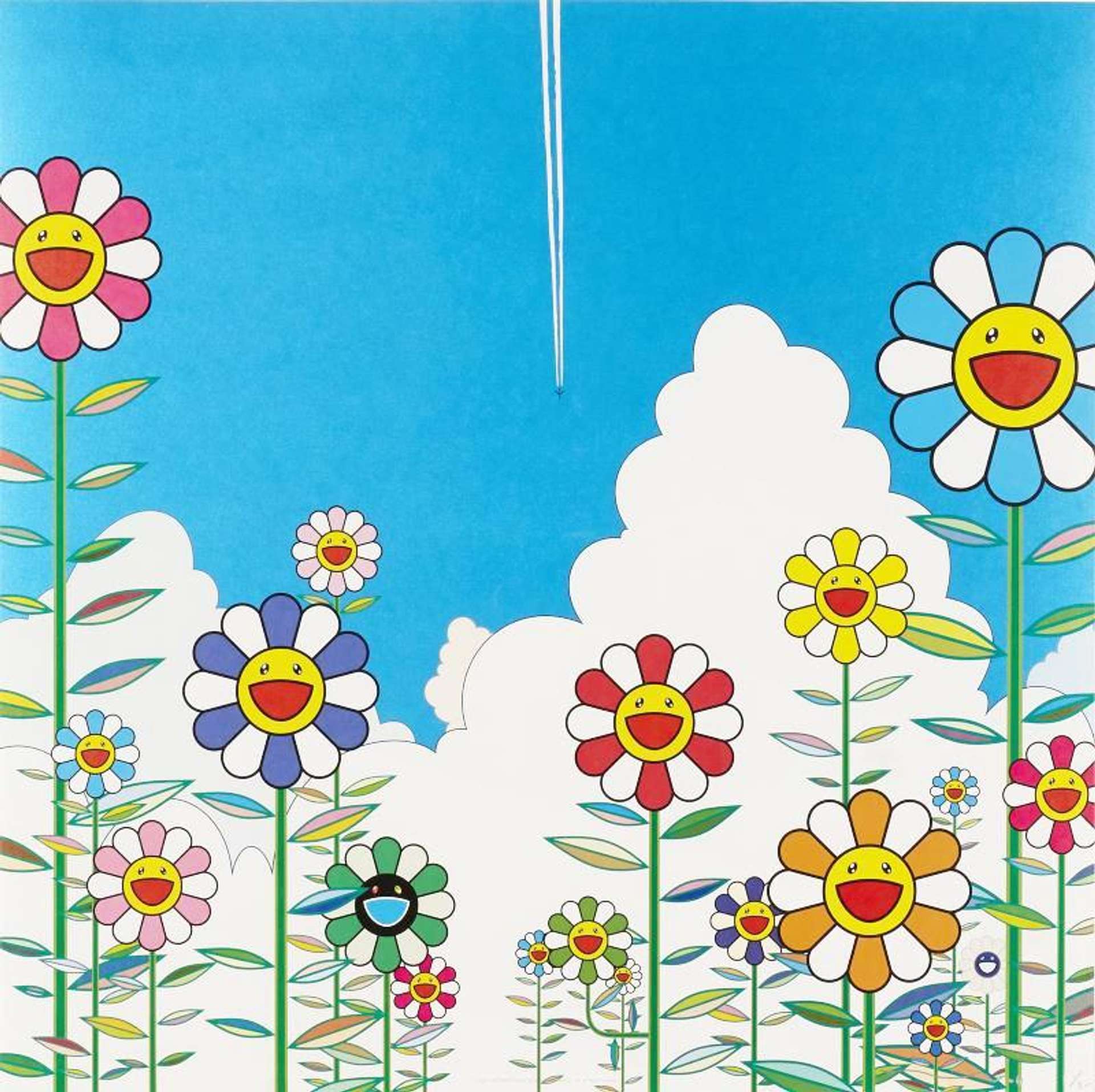 Dollar Sign Quad (F&S 11. 281) © Andy Warhol 1982
Dollar Sign Quad (F&S 11. 281) © Andy Warhol 1982Live TradingFloor
Is NFT art valuable? Compared to physical art, NFTs offer stronger authenticity, clearer provenance, more variety, potentially better rates, and can be more empowering for the artist – here we discuss the hidden value of NFTs.
Is buying NFTs safe?
The sale of a non-fungible token (NFT) is, in theory, safer and more transparent than buying a physical painting or a print: each NFT holds a digital record of its unique ID and transaction history in its blockchain code, which cannot be altered or forged. For physical art, however, their certificate of authenticity can be forged. Their paper trail of previous ownership can be lost or found only in exclusive catalogue raisonné books; with NFTs, this information is available to all.
To make buying and selling NFTs a safer process, leading NFT marketplace OpenSea announced new measures in May 2022 to improve the authenticity of their NFT offerings, including verification of creators and collectors, and a clamping down of ‘copymints’ (plagarised versions of original artworks).
 Image ⓒ .RGB.
Image ⓒ .RGB.Is NFT art just images?
There is a huge variety of NFTs to collect, not just still images (like jpegs, for example Beeple’s Everydays: The First 5000 Days, worth US$69.3 million) or moving images (like gifs, such as Nyan Cat, the US$561,000 flying space cat), but also music videos, sports clips, digital games, tweets, and avatars (metaverse personas). Any type of digital asset can be ‘minted’, or registered on a blockchain, and owned or traded.
 Everydays: The First 5000 Days © Beeple 2021
Everydays: The First 5000 Days © Beeple 2021Some NFTs can also change with time. With physical art, buyers hope their purchase always stays the same – any change usually results in a decrease in value — but with interactive NFTs, buyers can change or customise features after the purchase.
Bored Ape Yacht Club — considered the ultimate NFT status symbol — released a ‘Mutant Serum’ add-on in early 2022, which can transform a Bored Ape into a Mutant Ape, a completely new NFT on the blockchain. Likewise, the NFT CryptOrchids involves caring for a ‘seed’ that grows into an orchid ‘plant’. If the orchid NFT ‘dies’ from not being watered enough, the buyer loses their investment; but if the orchid survives, it can be re-sold. For both Mutant Ape and CyrptOrchids, the NFT that is sold on can be entirely different from the one purchased.
How are NFTs better value for buyers?
In addition to being more secure, NFTs also offer innovative ways to buy not available in traditional galleries or auction houses, such as multiple ownership. The world’s most expensive NFT, The Merge by digital artist Pak, sold for US$91.8 million to 28,983 buyers. Its price was higher than the sale of Jeff Koon’s Rabbit, the most expensive artwork by a living artist at auction.
NFTs can also offer better value for buyers by removing the middlemen involved in the sale. Many traditional artists are represented by galleries or art dealers who often charge a variety of fees — including buyers and sellers commission, transport, storage and marketing fees — making each sale more expensive for the buyer and less profitable for the artist.
On the blockchain, buyers and artists can transact directly and fees are upfront. As standard, all Ethereum sales have a gas fee to cover the computer power needed for the transaction, while artist’s fees can be found in the NFT’s smart contract.
How are NFTs better for artists?
The NFT marketplace, along with the rise of the metaverse, have allowed emerging digital artists to bypass the gatekeeping of traditional galleries or auction houses and establish themselves on the market.
New virtual worlds like Vertikal, dedicated to art and culture, provide opportunities for artists to exhibit and mint their work for free. In these spaces, an artist at the start of their career has the same chance of being discovered as established artists with years of support behind them.
While some platforms take an artist commission — NFT art marketplace SuperRare, for example, deducts 15% for royalties –— this is still lower than most bricks-and-mortar galleries.
Can NFTs increase in value?
While the high volatility of the crypto market makes it hard to make predictions about the future value of NFTs, NFTs can offer more than just resale value: they can also be a ticket into exclusive clubs or metaverses, offering even more return on investment.
Bored Ape Yacht Club NFT owners have access to an exclusive community both online and offline, such as: locked Discord groups providing tips on crypto-trading, real-life events and pop-up shops with limited-edition merchandise, as well as new NFT drops, such as the Bored Ape Kennel Club. The new add-on gives members the opportunity to ‘adopt’ a new NFT dog for free – and sell it for a huge return.
Meanwhile, an NFT passport to DJ Steve Aoki’s new metaverse, A0K1VERSE, gives the buyer access to free mints and future NFT drops, tour tickets to real-life concerts, digital and physical collectables and much more. After the initial purchase, the NFT becomes a gift that keeps on giving.





